第18章
The new Anglo-Chinese war presents so many complications that it is utterly impossible to guess the turn it may take. For some months the want of troops, and for a still longer time the want of decision, will keep the British pretty inactive except, perhaps, on some unimportant point, to which under actual circumstances Canton too may be said to belong.
One thing is certain, that the death-hour of Old China is rapidly drawing nigh. Civil war has already divided the South from the North of the Empire, and the RebelKing seems to be as secure from the Imperialists (if not from the intrigues of his own followers) at Nanking, as the Heavenly Emperor from the rebels at Peking. Canton carries on, so far, a sort of independent war with the English, and all foreigners in general; and while British and French fleets and troops flock to Hong Kong, slowly but steadily the Siberian-line Cossacks advance their stanitzas from the Daurian mountains to the banks of the Amur, and the Russian marines close in by fortifications the splendid harbours of Manchuria. The very fanaticism of the southern Chinese in their struggle against foreigners seems to mark a consciousness of the supreme danger in which Old China is placed; and before many years pass away we shall have to witness the death struggles of the oldest empire in the world, and the opening day of a new era for all Asia.
[TRADE OR OPIUM?]
New York Daily Tribune September 20, 1858 by KARL MARX
THE NEWS of the new treaty wrung from China by the allied Plenipotentiaries has, it would appear, conjured up the same wild vistas of an immense extension of trade which danced before the eyes of the commercial mind in 1845, after the conclusion of the first Chinese war. Supposing the Petersburg wires to have spoken truth, is it quite certain that an increase of the Chinese trade must follow upon the multiplication of its emporiums? Is there any probability that the war Of 1857-8 will lead to more splendid results than the war of 1839-42?
So much is certain that the Treaty Of 1842, instead of increasing American and English exports to China, proved instrumental only in precipitating and aggravating the commercial crisis of 1847. In a similar way, by raising dreams of an inexhaustible market and by fostering false speculations, the present treaty may help preparing a new crisis at the very moment when the market of the world is but slowly recovering from the recent universal shock. Besides its negative result, the first opium-war succeeded in stimulating the opium trade at the expense of legitimate commerce, and so will this second opium-war do if England be not forced by the general pressure of the civilized world to abandon the compulsory opium cultivation in India and the armed opium propaganda to China. We forbear dwelling on the morality of that trade, described by Montgomery Martin, himself an Englishman, in the following terms:
"Why, the 'slave trade' was merciful compared with the 'opium trade'. We did not destroy the bodies of the Africans, for it was our immediate interest to keep them alive; we did not debase their natures, cormpt their minds, nor destroy their souls. But the opium seller slays the body after he has corrupted, degraded and annihilated the moral being of unhappy sinners, while, every hour is bringing new victims to a Moloch which knows no satiety, and where the English murderer and Chinese suicide vie with each other in offerings at his shrine."The Chinese cannot take both goods and drug; under actual circumstances, extension of the Chinese trade resolves into extension of the opium trade; the growth of the latter is incompatible with the development of legitimate commercethese propositions were pretty generally admitted two years ago. A Committee of the House of Commons, appointed in 1847 to take into consideration the state of British commercial intercourse with China, reported thus:
We regret "that the trade with that country has been for some time in a very unsatisfactory condition, and that the result of our extended intercourse has by no means realized the just expectations which had naturally been founded on afreer access to so magnificent a market.... We find that the difficulties of the trade do not arise from any want of demand in China for articles of British manufacture or from the increasing competition of other nations.... The payment for opium ... absorbs the silver to the great inconvenience of the general traffic of the Chinese; and tea and silk must in fact absorb the rest."The Friend of China, Of July 28, I 849, generalizing the same proposition, says in set terms: